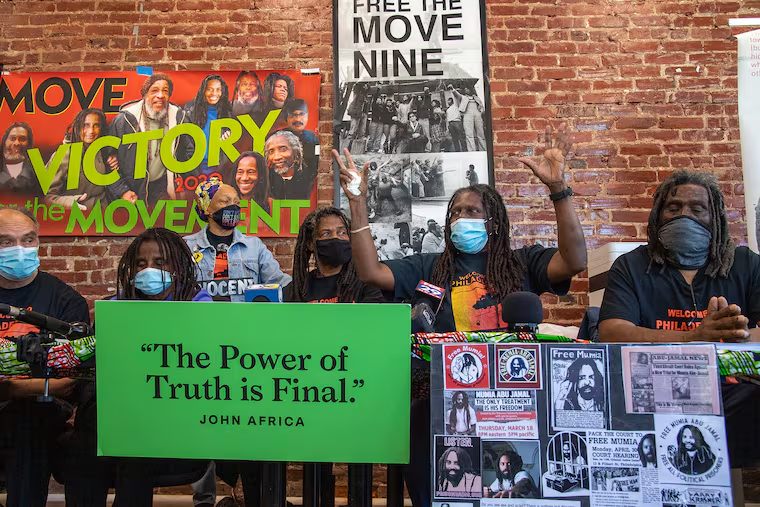Former Penn anthropologist gives remains of MOVE bombing victim to Philly funeral home
Terry Funeral Home in West Philadelphia will house the remains until further plans are made.

The remains of a girl killed in the MOVE bombing were turned over Friday to a West Philadelphia funeral home, more than a week after controversy first flared about how two of the region’s top universities had used the body parts in classes and exhibits and after an anthropologist involved in the city’s investigation decades ago confirmed he still had them.
Alan Mann, a former University of Pennsylvania anthropology professor hired in the 1980s by a city commission to identify the remains, confirmed Friday that he gave the pelvic bone and part of a femur — believed to be from 14-year-old Tree Africa — to the Terry Funeral Home.
Gregory Burrell, the chief executive of the funeral home, said Friday morning he picked up the remains from Mann’s home in New Jersey.
Mann had told The Inquirer on Monday that he hadn’t seen the remains in over a decade, and had no idea where they were located. When asked Friday about the discrepancy, Mann declined further comment.
The planned transfer of the remains was first reported by The Philadelphia Tribune.
The return capped 10 days of controversy and demonstrations over the mishandling of the body parts that first came to light in an opinion piece published online last week by The Inquirer and written by activist Abdul-Aliy Muhammad.
Unbeknownst to members of MOVE — a West Philadelphia-based activist organization whose compound was bombed by the city in 1985, killing 11 people and burning down more than 60 homes across a predominantly Black neighborhood — the girl’s remains had been shuttled back and forth between the University of Pennsylvania and Princeton University over the years, and had been recently used as part of a case study in an online course at Princeton.
» READ MORE: Controversy flares over how Penn and Princeton treated a MOVE bombing victim’s remains
Christopher Woods, director of the Penn Museum, told The Inquirer in an interview this week that he had been in contact with the Africa family since Tuesday to facilitate the transfer, although he declined to disclose details.
Burrell said Woods had contacted him to help with that process, though had not spoken with family members directly. He said he is not sure what the final plans are, but the funeral home would house the remains until further notice.
“We make sure that every family we serve is entitled to, or should have a decent burial,” said Burrell. “If we can facilitate this in any way then that’s what we’re going to do.”
Members of the MOVE family could not be reached for comment Friday.
After Muhammad’s commentary posted, members of MOVE expressed outrage at public demonstrations, first at their headquarters in West Philadelphia, and at another outside the Penn Museum that culminated with a march to the residence of university president Amy Gutmann in University City.
During those protests, MOVE accused the city and the Penn Museum of mishandling and disrespecting the remains of children who died in the blast. Pam Africa, one of the group’s most vocal members, called the museum “body snatchers” and “grave robbers.”
The museum said the usage of the bones as a case study in the anthropology course represented “a serious error in judgment.”
Woods, the Penn Museum’s director, said he planned to sit down with the Africa family to listen to their concerns, and “continue the discussion.”
An independent investigation has been commissioned by the museum to determine why the remains stayed in the custody of first Penn, and later Princeton, for nearly 40 years, according to Woods.
”They shouldn’t have been there. It’s unconscionable,” he said. “They should’ve been given back to the medical examiner for eventual repatriation with the family a long time ago.”